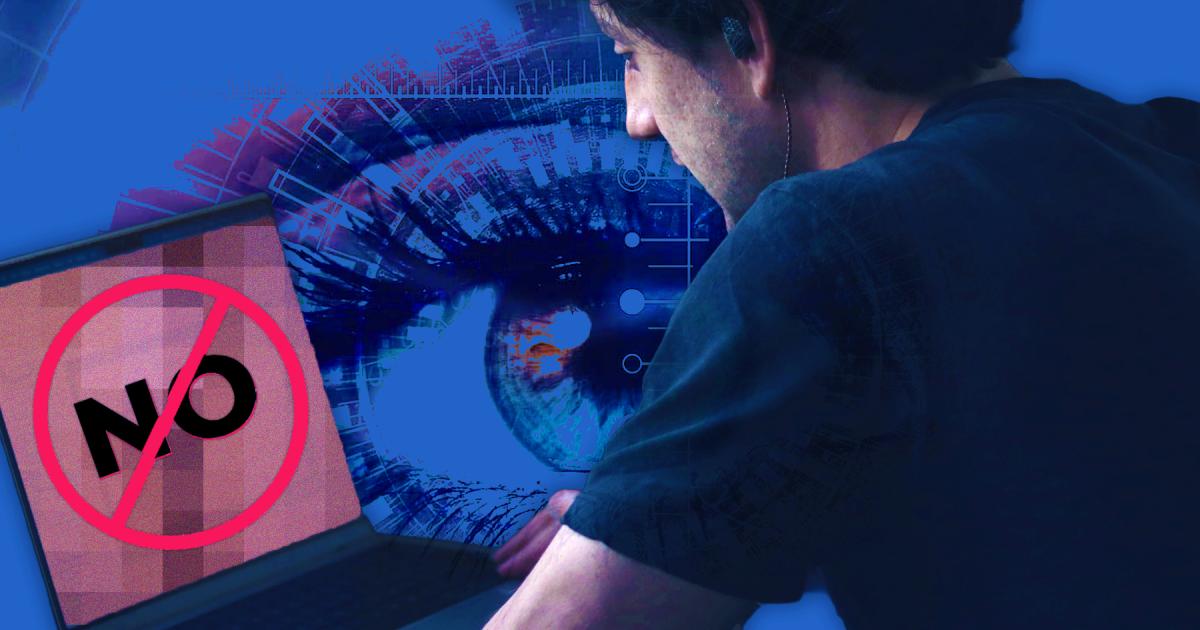The idea behind mandatory age-checks on websites is simple enough: if you force users to scan their faces, upload their driving licence, or share their credit card details, you can prove they’re real-life adult human beings.
And that makes it harder for children to access porn — and, ultimately, harder for predators to access children.
The Government’s defence of the Online Safety Act has been robust. When Nigel Farage said he’d scrap it, Technology Secretary Peter Kyle said the Reform chief was on the side of one of the UK’s most notorious sex offenders.
“Make no mistake, if people like Jimmy Savile were alive today he would be perpetrating his crimes online — and Nigel Farage is saying he is on their side,” he told Sky News.
READ MORE FROM UNSPUN:
When Farage called the minister’s comments “absolutely disgusting” and asked, “Just how low can the Labour Government sink?” Mr Kyle refused to back down, saying on social media: “If you want to overturn the Online Safety Act, you are on the side of predators. It is as simple as that.”
But a month in, it’s fair to ask: is the law working? Is it stopping the predators?
Last week, the Washington Post analysed traffic data from 90 of the world’s biggest adult sites and found that the ones complying with the new legislation have seen their UK traffic completely and utterly collapse.
But those that simply ignored Ofcom’s rules — that’s 14 of their 90 — enjoyed the opposite effect. Their audiences soared.
Basically, the new law is pushing determined adult users away from the seedy corners of the internet to the seedy, unregulated corners of the internet.
Users are turning to sites that just ignore the law.
John Scott-Railton, a researcher at the Citizen Lab at the University of Toronto who studies surveillance and digital rights, told the paper the UK law was “a textbook illustration of the law of unintended consequences”.
The laws are easy to get around too. Peter Kyle didn’t help. He told the BBC that “everybody who’s out there thinking of using VPNs … let’s just not try and find a way around.”
VPN apps have since soared to the top of the country’s app-store download charts.
There are also concerns over handing passports, credit card details or biometric scans to private companies — especially ones that trade in pornography.
Ofcom says it is monitoring thousands of porn sites, with four investigations already launched. The regulator has the power to levy multi-million-pound fines and to pressure advertisers and internet providers into cutting off rogue platforms.
But enforcement is patchy and slow — and for every site shut down, clones can spring up overnight.
The new law is partly in response to the fact that tech companies have an abysmal record when it comes to child safety. That, frankly, they simply don’t care about the damage.
Recent research by Children’s Commissioner Dame Rachel de Souza found that the proportion of children who have seen pornography online has risen in the past two years — and most are likely to have stumbled upon it accidentally.
Will these new laws prevent that? It seems unlikely.
Dame Rachel described the content young people are seeing as “violent, extreme and degrading” — and often illegal — and said her findings must be seen as a “snapshot of what rock bottom looks like”.
The problem is that the problem hasn’t gone away with the Online Safety Act.
The paradox at the heart of Britain’s new regime: a law designed to make the internet safer may in practice be making it stranger, darker and less accountable.
Ministers say they are on the side of children. But unless enforcement becomes faster and smarter, the new law risks becoming an ineffective, well-intentioned policy that drives harm into the shadows rather than rooting it out.

